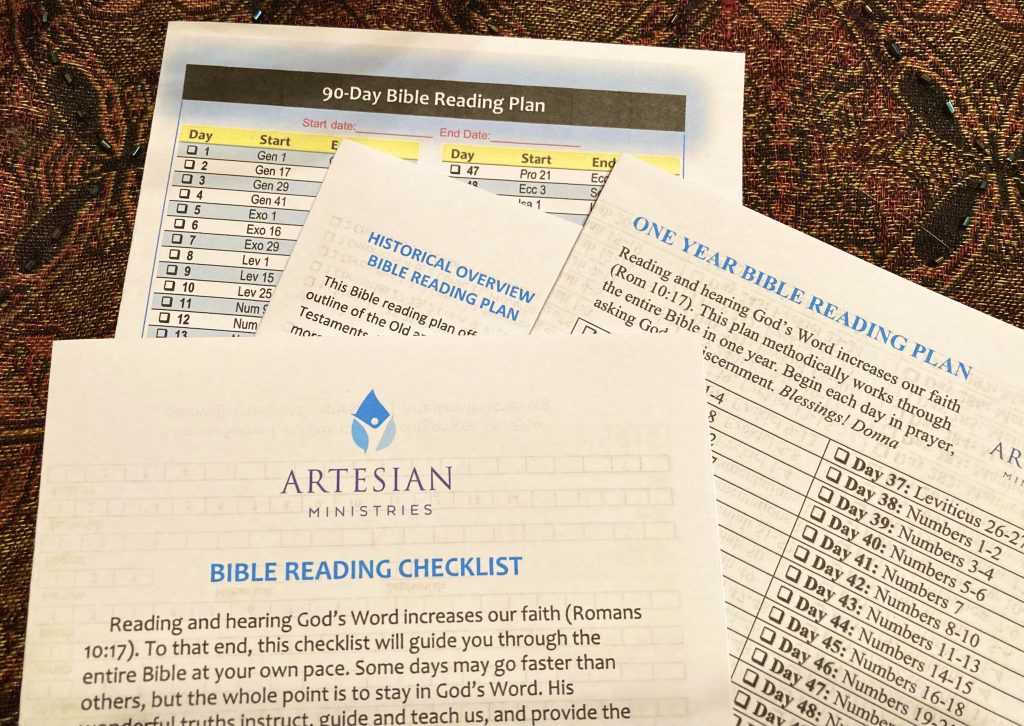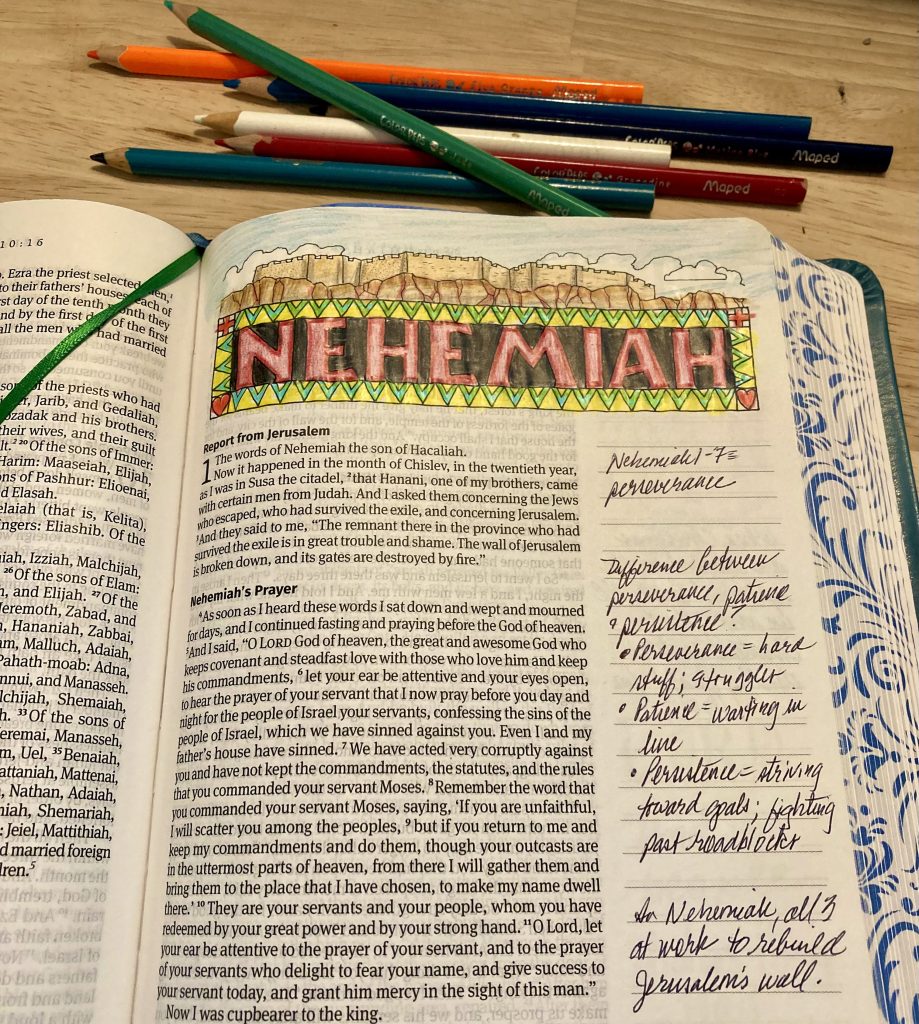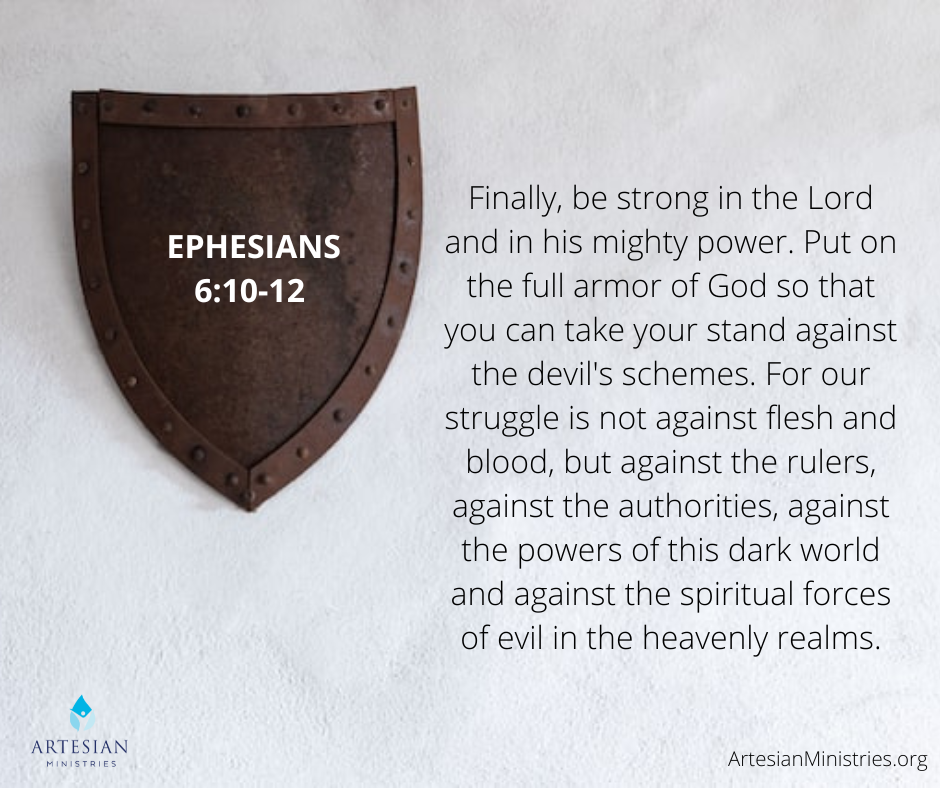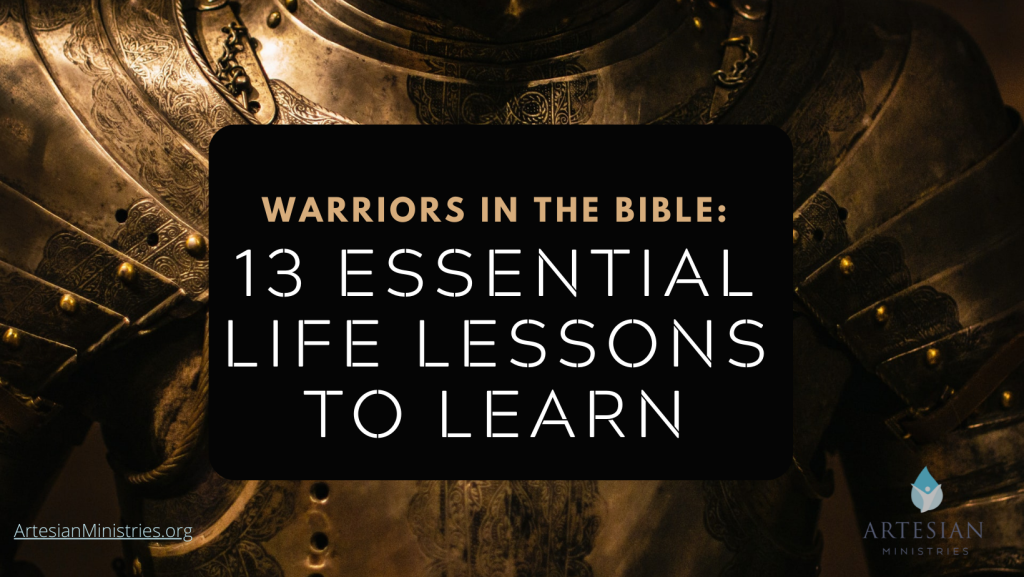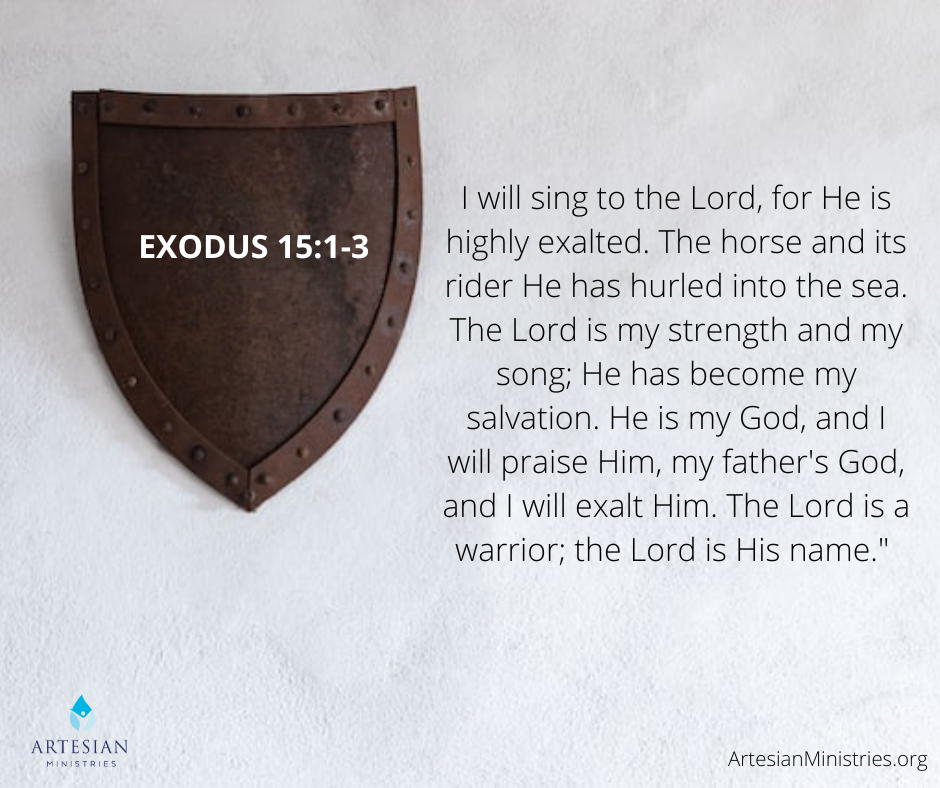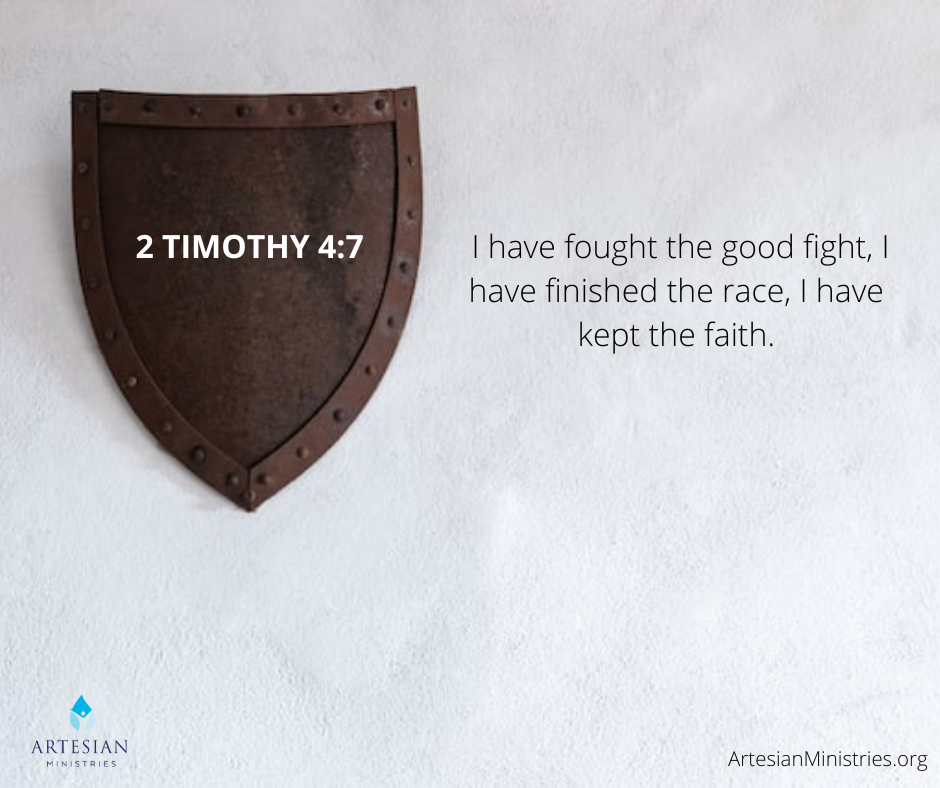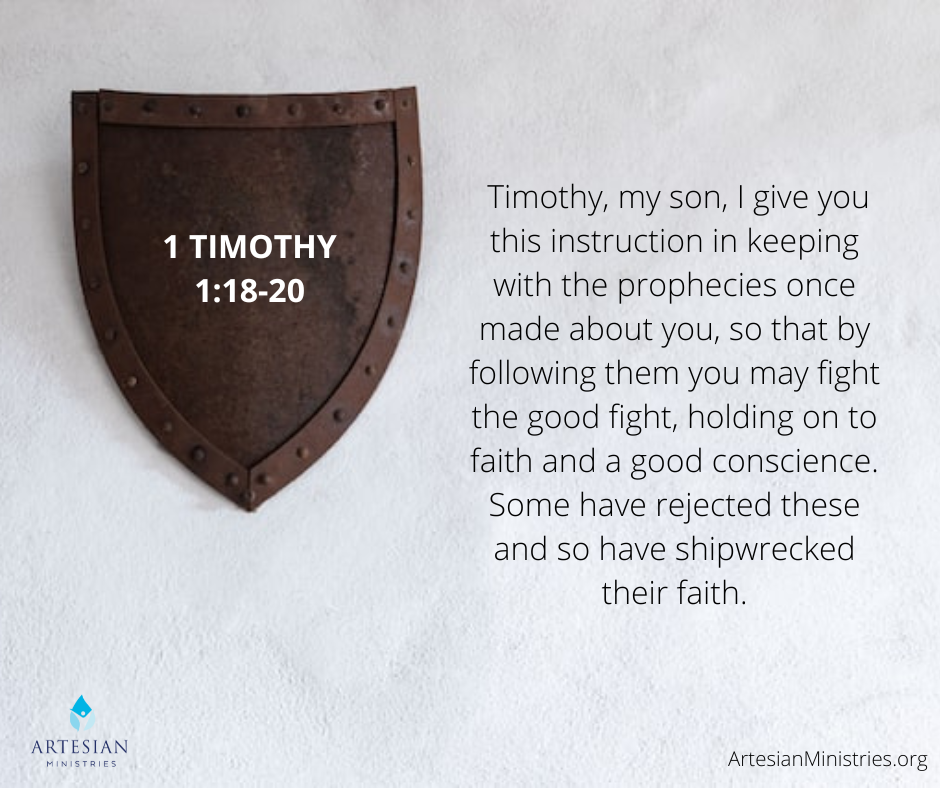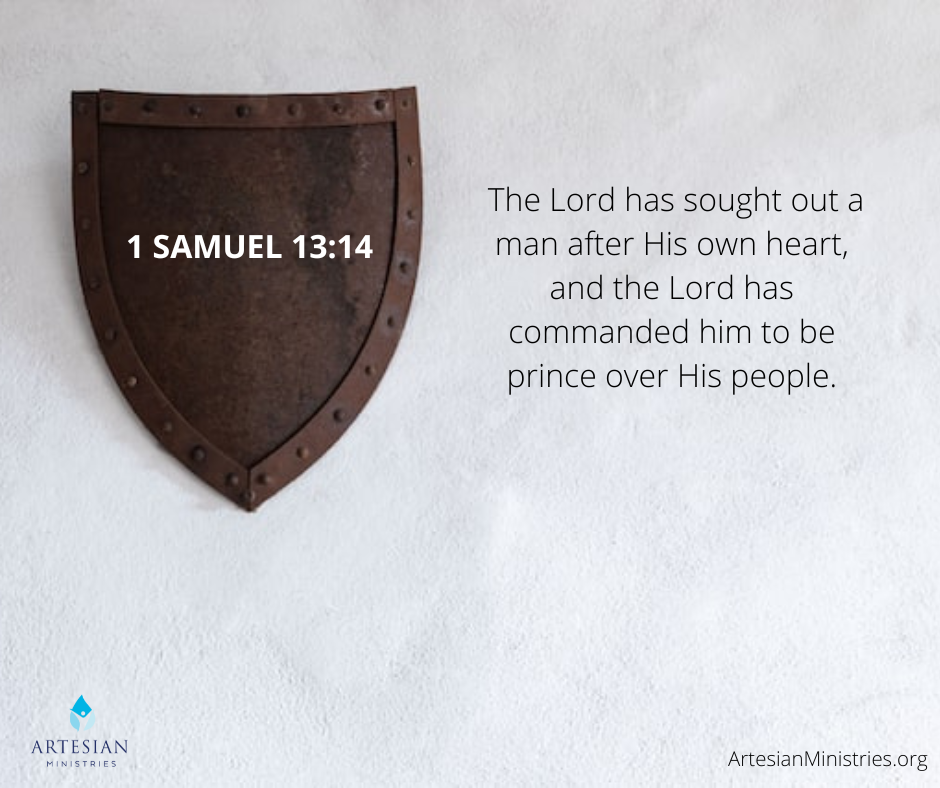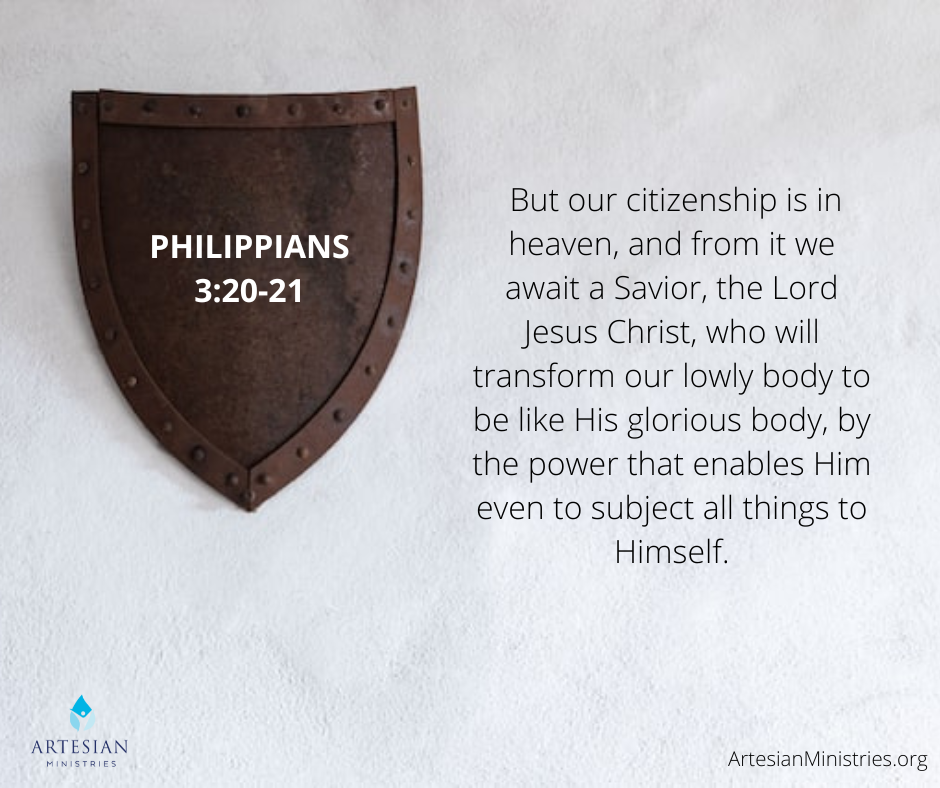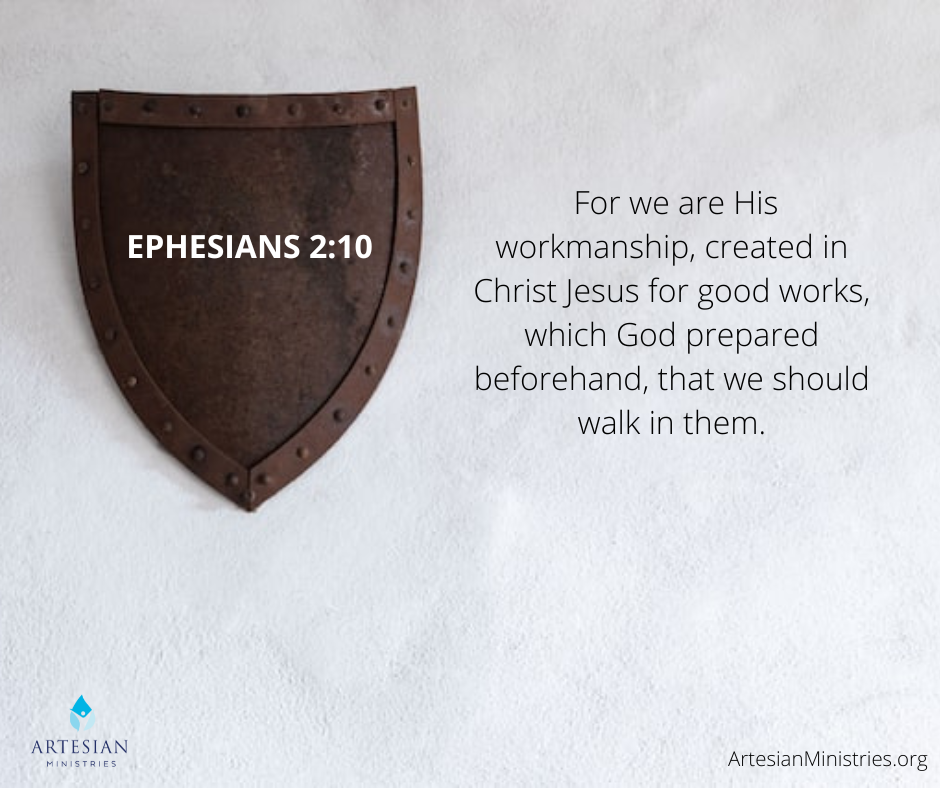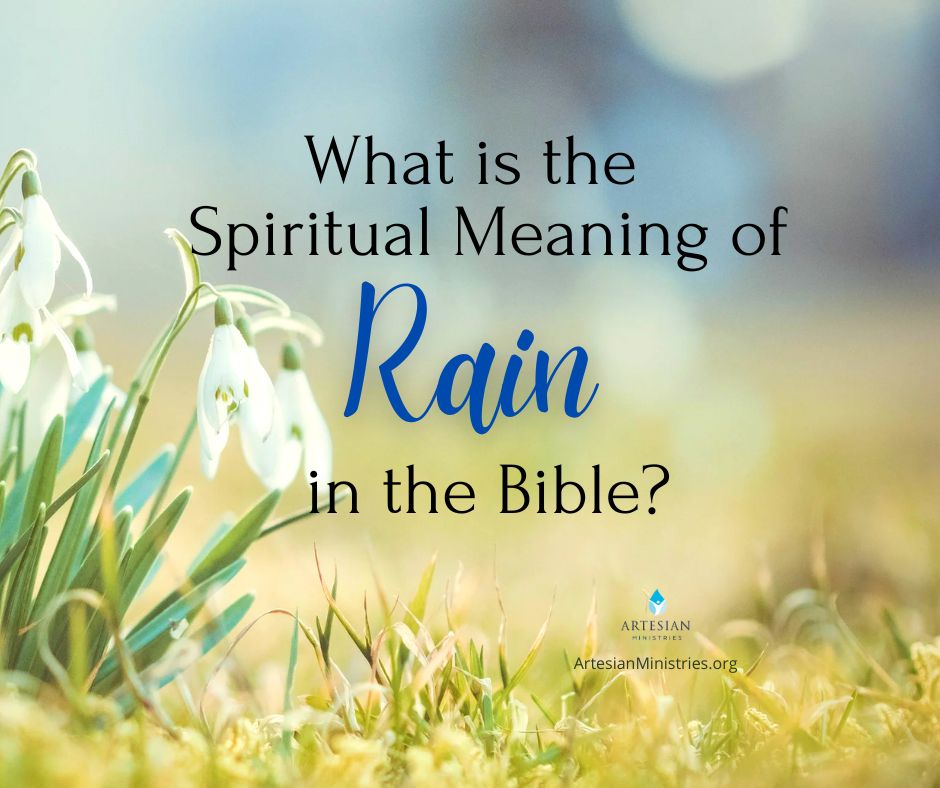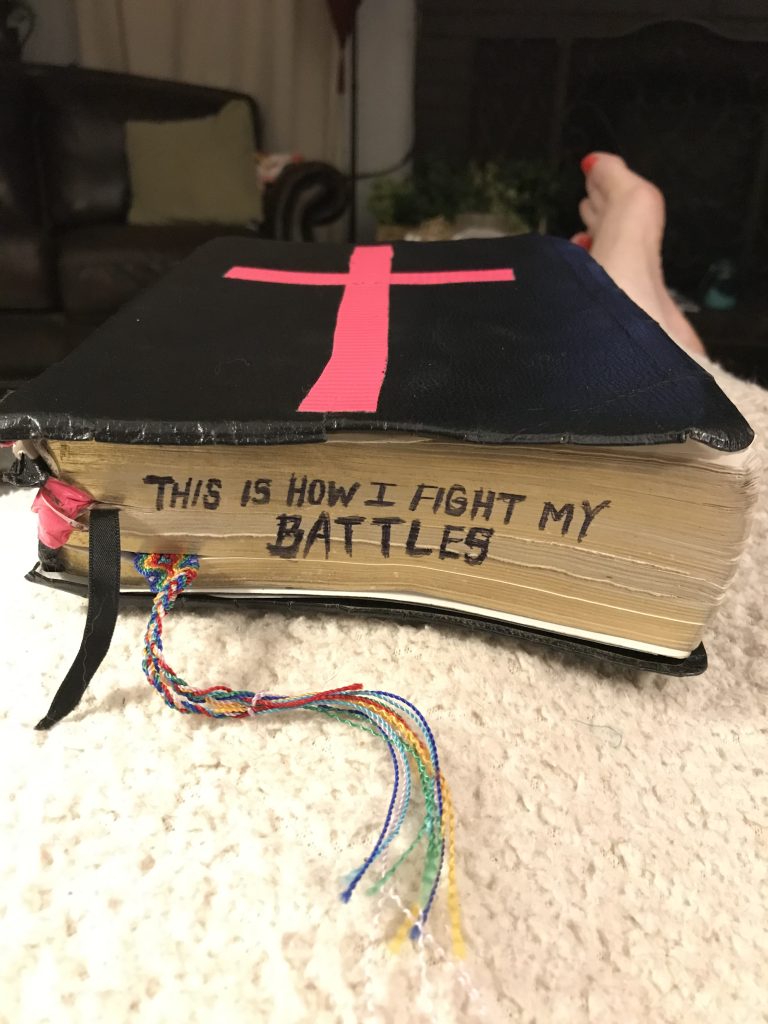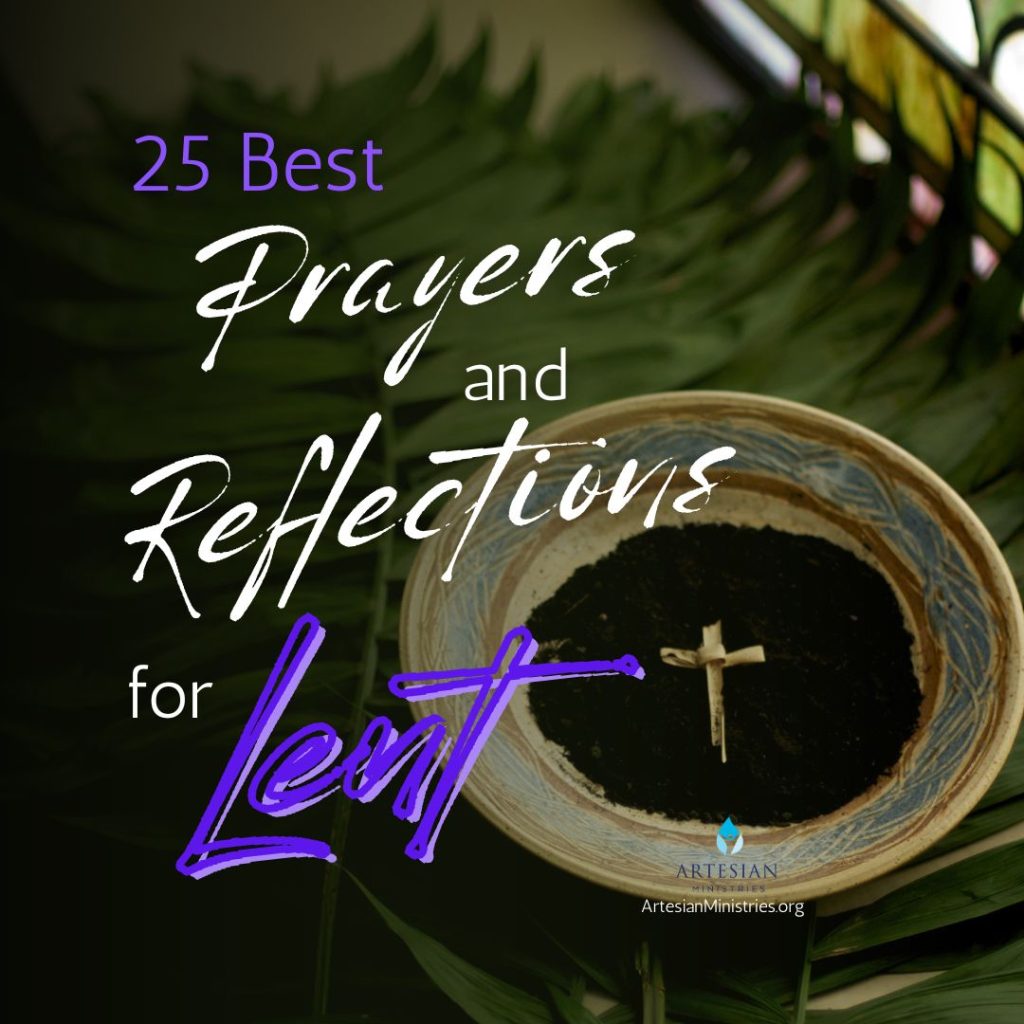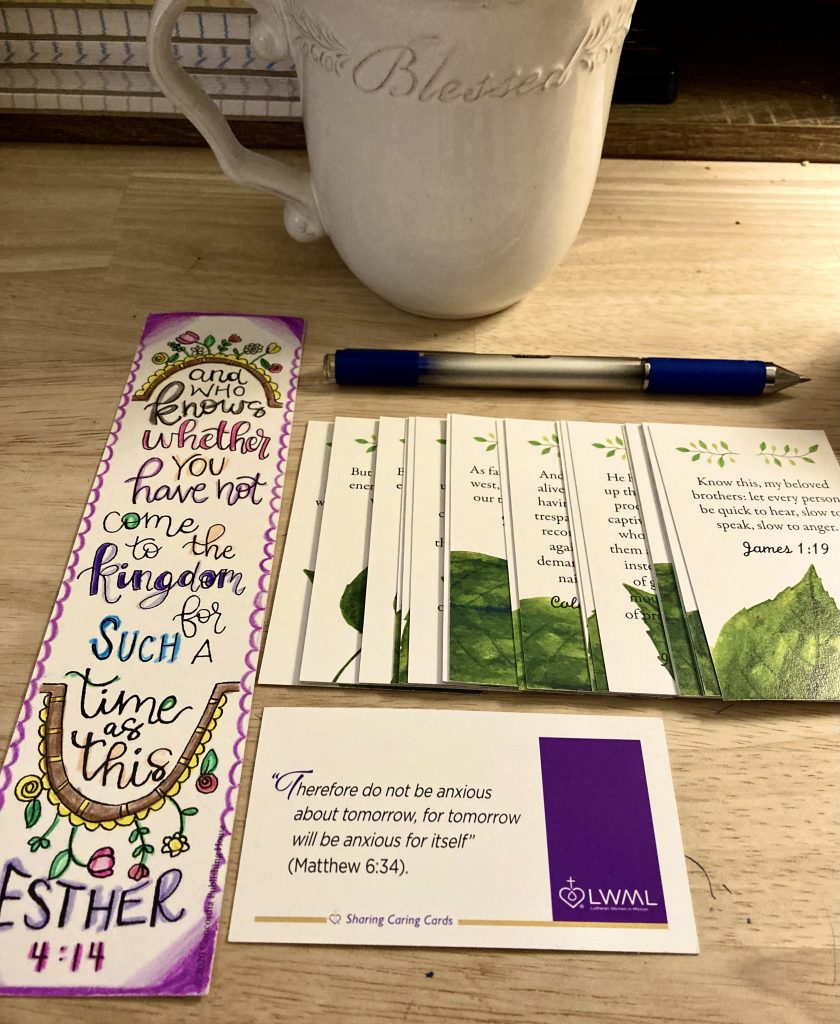I did not know that Catholic and Protestant Bibles differed in their number of books until my early twenties when I began attending church regularly and digging deep into Scripture.
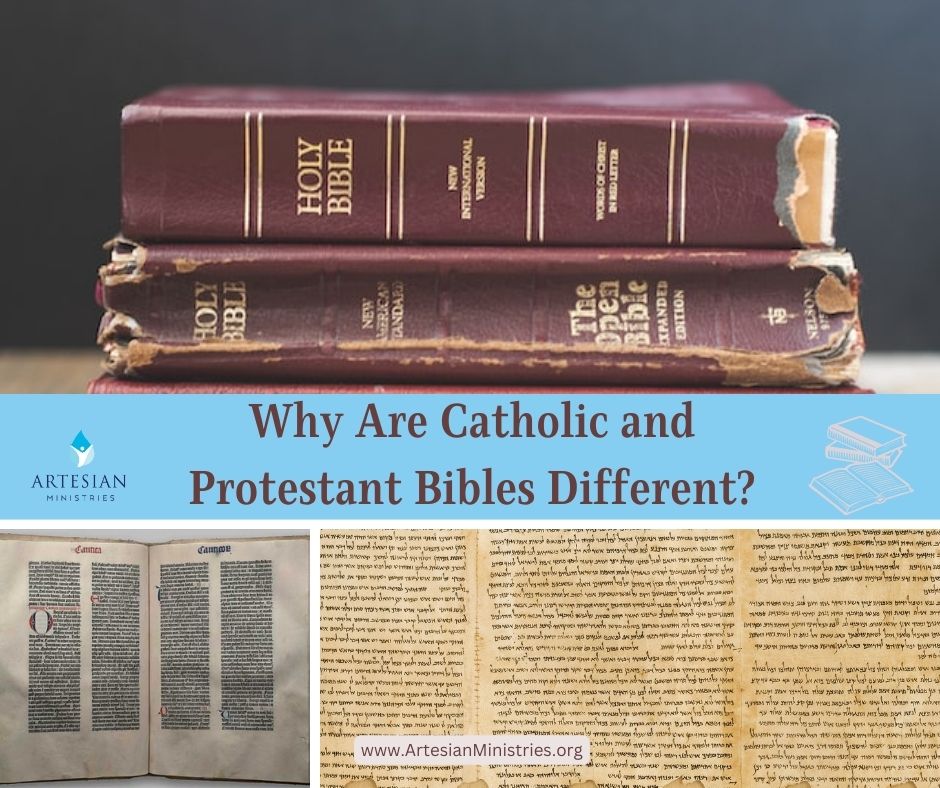
Naturally, my first question back then was, “Who’s right?” Thankfully, thirty years later God has matured that question into, “What does each Bible contain, how do they differ, and where did that difference originate?”
Let’s begin to answer these questions by first laying the groundwork for how scriptural books were determined and chosen as they appear in both Bibles.
The Biblical Canon
The biblical canon is the collection of scriptural books that God has given His people. They comprise the Bible we hold today, distinguished by their divine qualities, reception by God’s people, and apostolic connection (either by authorship or association).
Typical questions regarding the assembly of the biblical canon generally fall into two broad categories: historical and theological.

Historical Questions
First-century Jewish historian Flavius Josephus lists 22 Old Testament books that were accepted by the Jews. His list is confirmed by another first-century Jewish source, Philo of Alexandria, which includes exactly the same books as our present thirty-nine books of the Old Testament.
By the turn of the millennium, a Jewish canon of Scripture was largely in place and defined. In fact, there is not a single instance where a New Testament author cites a book as Scripture that is not contained in the current Old Testament canon.
In the New Testament canon, 22 out of the 27 books were widely accepted as Scripture by the second century. Even though disputes over some of the smaller books (such as 2 Peter, Jude, James, and 2-3 John) were not resolved until the fourth century, the core of the New Testament canon had already been in place for roughly two centuries.

Theological Questions
Two questions lead the charge in this category. How do we know that the books included in the biblical canon were the right ones? How can we discern that a book is given by God?
Genesis 1 establishes that God created the heavens, earth, and everything in them. We know this to be true because we see God’s own attributes reflected in His creation (Psalm 19; Romans 1:20). Creation contains beauty, harmony, excellence, and power, all divine qualities we expect to find in God’s special revelation.
Believers also recognize the voice of the Lord in the Bible, as confirmed by Jesus: “My sheep hear my voice, and I know them, and they follow me” (John 10:27, ESV).
Also under the theological umbrella is the fact that canonical books are written by God’s inspired prophets and apostles. Only those specifically commissioned by God can be His mouthpiece (Romans 1:2; 2 Peter 3:2; Mark 3:14-15; Matthew 10:20; Luke 10:16).

How Do the Catholic and Protestant Bibles Differ?
The Pentateuch
The Pentateuch (or books of the Law) contains the same five books in both Bibles: Genesis, Exodus, Leviticus, Numbers, and Deuteronomy.
The Minor Prophets
The Minor Prophets contain the same twelve books in both Bibles: Hosea, Joel, Amos, Obadiah, Jonah, Micah, Nahum, Habakkuk, Zephaniah, Haggai, Zechariah, and Malachi.
The Major Prophets
Both Bibles contain these five books of the Major Prophets: Isaiah, Jeremiah, Lamentations, Ezekiel, and Daniel. However, the Catholic Bible has one additional book: Baruch.
Poetical and Wisdom Books
Both Bibles contain these five Poetical and Wisdom books: Job, Psalms, Proverbs, Ecclesiastes, and the Song of Solomon. However, the Catholic Bible has two additional books: the Wisdom of Solomon and Sirach.
Historical Books
Both Bibles contain these twelve Historical books: Joshua, Judges, Ruth, 1 Samuel, 2 Samuel, 1 Kings, 2 Kings, 1 Chronicles, 2 Chronicles, Ezra, Nehemiah, and Esther. However, the Catholic Bible has four additional books: Tobit, Judith, 1 Maccabees, and 2 Maccabees.

What Part Does the Apocrypha Play?
The books of the Bible not included in the Protestant Bible are usually called the Apocrypha, meaning “hidden books”), Old Testament Apocrypha (since all are included in the Catholic Bible), or deuterocanonical books (from the Greek word meaning “belonging to the second canon” or having secondary authority).
This third set of books, or “extra books”, were not considered to be divinely inspired but regarded as worthy of study by the faithful. These books were written during the Intertestamental period of those four hundred years between Malachi (the end of the Old Testament) and Matthew (the beginning of the New Testament).

Translation Issue
Since Greek was the common language of the Eastern Roman Empire, some of the later Jewish books were written in Greek instead of Hebrew. These later books were only included in the Greek translation of the Old Testament called the “Septuagint.”
Between 383 and 404 AD, St. Jerome translated the whole Bible into Latin, which was the common language of the Western Roman Empire. When he translated the Greek New Testament and the original Hebrew Old Testament into Latin, he also translated the Greek “Apocrypha” – those extra books.
However, he diligently included notations that they were not part of the original Hebrew Old Testament. Unfortunately, later copyists neglected or omitted St. Jerome’s notations, and soon his whole Latin translation was considered of equal divine authority.
What Books are in the Apocrypha?
The Apocrypha consists of the following books: Judith, Wisdom of Solomon, Tobit, Ecclesiasticus, Baruch, Epistle of Jeremiah, 1 Maccabees, 2 Maccabees, 3 Maccabees, 4 Maccabees, Old Greek Esther, Susanna, Bel and the Dragon, Prayer of Azariah, Song of the Three Holy Children, Prayer of Manasseh, 1 Esdras, 2 Esdras, and Psalm 151.

The Impact of the Protestant Reformation
During the 16th century Protestant Reformation, Protestant scholars, including former Catholic priest Martin Luther, rediscovered the importance of both the original Hebrew Old Testament and the Hebrew language in which it was written.
As a result of their rediscovery, many of these Protestant Christians did not accept the Greek additions (Apocrypha) as authoritative or part of sacred Scripture, but only the original Hebrew books of the Old Testament.
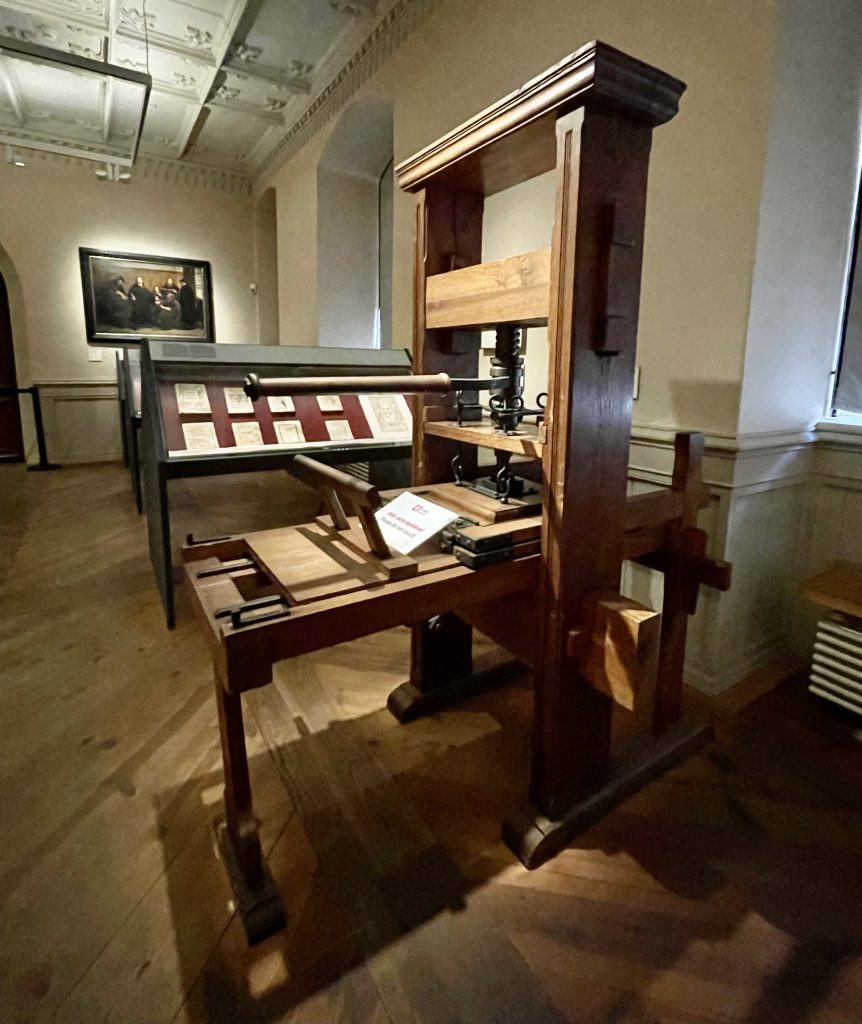
The First Printed Bible Editions
Before Protestant Reformers lodged their objections, the very first printed edition of the King James Bible included the Old Testament Apocrypha. Consequently, Roman Catholic Bibles today include seven books of the Old Testament Apocrypha as part of sacred Scripture.
Following the objections of these Protestant early church fathers, the second and subsequent editions of the King James version excluded the Apocrypha. Protestant Bibles exclude it from the biblical canon to this day.
Today, some Bibles include the Apocrypha as an appendix or provide a companion resource that separates it from the original Hebrew Old Testament.
Interestingly, the Gutenberg Bible does not contain the Apocrypha, as it was a printed version of the 3rd century Vulgate, which also omits the Apocrypha.

The Dead Sea Scrolls
Located east of Jerusalem, the mountainous landscape of the Judean Desert plummets an astonishing 1200 meters to the lowest point on earth: the Dead Sea. This region near Qumran boasts rocky terrain, intense heat, and numerous desert caves. I have been there more than once and it is stark, to say the very least.
Some of the most dramatic stories in the Bible happened in that region. David ran from King Saul to seek refuge in those mountain caves. Jesus rejected the temptations of the devil in that barren desert.

The Greatest Discovery
Yet in 1947, a young Bedouin shepherd was tracking stray sheep among those limestone cliffs lining the northwestern rim of the Dead Sea near Qumran. He stumbled upon a cave tucked into a crevice of a steep rocky hillside. Curious, he threw a stone into the darkness and was startled to hear the sound of breaking pots.
That sound echoed around the world as what turned out to be the greatest archaeological discovery of the twentieth century: the Dead Sea Scrolls. Buried in large clay pots in the arid sands of eleven Qumran caves for thousands of years, the shepherd boy’s discovery revolutionized our understanding of history and religion.
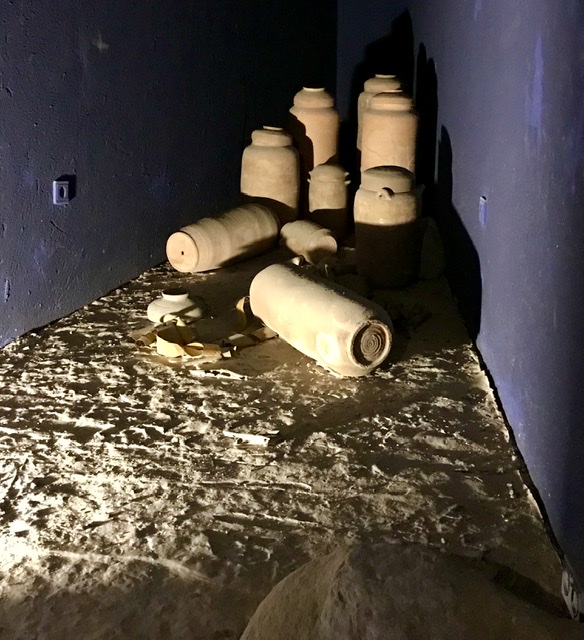
The Significance of the Scrolls
Also known as the “Qumran Cave Scrolls“, they contain significant religious literature dated between the third century AD to the first century AD. The scrolls include biblical manuscripts (books found in today’s Hebrew Bible) and non-biblical manuscripts—other religious writings of historical fact circulating during the Second Temple era, often related to the texts now in the Hebrew Bible.
While Hebrew is the dominant language contained in the Scrolls, approximately 15% of the Scrolls are written in Aramaic and several are written in Greek. The materials making up the Scrolls mainly consist of parchment, although some are papyrus. Interestingly, the text of one Scroll is engraved on copper.
Why are the Scrolls so Vital?
So what does this have to do with our topic? Among the Dead Sea Scrolls are partial or complete copies of every book in the Hebrew Bible, all of which are contained in the Protestant Bible.
However, according to the Israel Antiquities Authority, three works of the Apocrypha are found among the Dead Sea Scrolls: Ben Sira (also known as the Wisdom of Ben Sira, Sirach, or Ecclesiasticus), the book of Tobit, and the Epistle of Jeremiah. These are included in today’s Catholic Bible, but not the Protestant Bible.

Timeline
The official list of Catholic books was pronounced at the Council of Trent during 1545-1563 AD. The Council of Trent was convened by Pope Paul III for all Catholic clerics in response to the Protestant Reformation.
Over three separate sessions, the council reaffirmed the authority of the Catholic Church, codified scripture, affirmed Catholic doctrines, reformed abuses, and condemned Protestant theology. They also established the vision and goals of the Catholic Counter-Reformation.
Protestants of the Reformation are credited with removing the additional seven books from the Protestant Bibles. They argued that since those seven Apocryphal books were not contained in the Hebrew Bible they should not be a part of the Christian Bible.
Bottom Line
As a Protestant, I am guided by the 66 authoritative, inspired canonical books of the Old and New Testaments. The first time I read any part of the Apocrypha was when I wrote my in-depth Bible study on the book of Esther. Since then, I have read through other books in the Apocrypha.

However, I do not hold or teach the Apocryphal books to be the inspired Word of God. They do not act as a plum line for my spiritual journey.
I trust the Holy Spirit’s work in those vastly smarter Christian biblical scholars from long ago who did the hard work of deliberating, praying through, and assembling what we hold today as the Christian (or Protestant) Bible.
Studying the Bible has been the single greatest tool (apart from the Holy Spirit) that God has used to increase my faith and come to know Jesus personally. If you are new to Bible study, start with the book of John which provides a stunning, in-depth story of Jesus our Savior. Knowing Him changes everything.
To God alone be the glory.

Related Posts:
- Best Bible Reading Plans
- Warriors in the Bible: 13 Essential Life Lessons to Learn
- 50 Motivational Bible Verses About Aging Gracefully
About the Author
Although Donna is a sought-after Bible teacher, her path from being unchurched to become passionate about sharing Jesus was not easy. Go here to read her God-breathed journey, “From Unchurched to Becoming a Multi-Published Author and Sought-After Speaker.” If you want to send Donna a quick message, then visit her contact page here.
{Some of these links are affiliate links. This means if you make a purchase through that link, the ministry may receive a small commission at no extra cost to you. Thank you for your ministry support!}
































